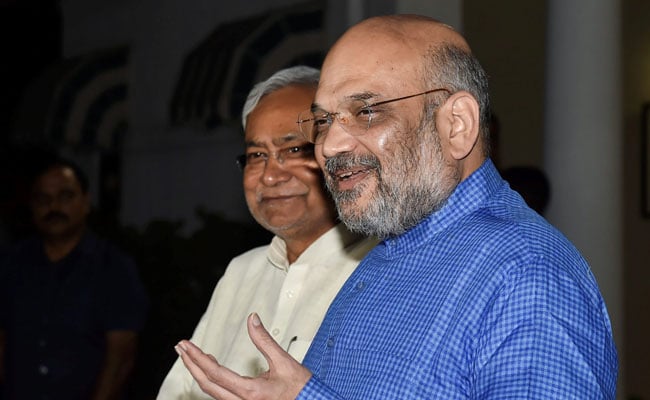Janjivan Bureau / Chandigarh : In 2019 Lok Sabha elections, the BJP and Nitish Kumar’s JD-U both contested on 17 seats each and the then undivided Lok Janshakti Party headed by Ram Vilas Paswan on six of the 40 Lok Sabha seats in the state. But that was a different day and much water had flown in river Ganga in Patna since then.
Kumar has done several somersaults, the last one being in favour of Prime Minister Narendra Modi and BJP ahead of 2024 elections. Several reasons are being cited for his latest U-turn, one of which being ‘his falling popularity and dwindling vote share of JD-U’.
However, the popularity of PM Modi and BJP has grown from strength to strength to emerge as a formidable political challenger. Observers, in fact, say the BJP could have won a much bigger number of seats had it gone without JD-U in Bihar this time.
In any case, the BJP was expected to play an upper hand this time and contest on a much larger number of seats than it had in the 2019 Lok Sabha elections. Instead, the saffron leadership chose to give Nitish Kumar almost an equal share, just one less seat.
In 2019, BJP and LJP won all their seats and JD (U) 16.
In the seat sharing formula for 2024, BJP will contest in 17 Lok Sabha constituencies, JD (U) 16 and Chirag Paswan’s LJP (Ram Vilas) five. The claims of the LJP faction led by Chirag’s uncle and Union minister Pashupati Kumar Paras were ignored and other two NDA allies—Hindustani Awam Morcha and Upendra Kushwaha-led Rashtriya Lok Morcha—landed one seat each.
However, this is also the first time the BJP has got more seats than Nitish Kumar-led JD (U) in Bihar, which many believe, “underscores the change in equations after they joined hands a few months back”.
There are various reasons why the BJP chose to give master acrobat Nitish Kumar more than his fair share, observers say.
The man has been in the top post for more than two decades, irrespective of who the people in Bihar vote for.
From 115 seats in 2010 to 71 in 2015 to 43 in 2020, JD(U)’s strength in the Assembly may have been on a slide but Nitish Kumar remains an important cog without which the wheel in Bihar cannot roll. According to state BJP leaders, Nitish Kumar and his party’s 15 per cent vote share remains a valuable addition.
This is the primary reason why BJP—a powerful party with a government at the Centre and in several key states, including the biggest of them all Uttar Pradesh—gave in to Nitish Kumar’s demands, say sources.
The BJP wants to score a perfect 40 in Bihar to achieve the target set by PM Modi—370 Lok Sabha seats by the BJP and 400 plus by the NDA—all of which would not have been possible without adding Nitish Kumar’s share in the kitty of 40 in Bihar, they add.
Nitish Kumar, a key face of Opposition’s INDIA bloc to take on PM Modi in the general election, is now with BJP which says a lot about the saffron party’s political finesse.
Observers say for BJP breaking perceptions regarding INDIA alliance counted more than getting a couple of more seats, individually. Nitish Kumar was the one who convened the first meeting of opposition parties in Patna in June last year, bringing together several frontline leaders on one platform.
Breaking away of Nitish Kumar has given power to the BJP’s argument against the opposition bloc, which counts more than a few extra seats in Bihar, they argue.
The fact is it is almost impossible to disentangle Bihar from caste politics and here is where all the allies—Nitish Kumar Kumar, Paswan, Jiten Manjhi and Kushwaha come in to break the forward and backward margins.
This apart, by giving Nitish Kumar an equal share, the BJP has also managed to quieten all the hullabaloo over caste census that started after the RJD-JD-U-led Bihar government’s caste-based survey.
2025 is the year when Bihar will vote to elect the state government and the BJP wants things to proceed smoothly till then.
Any acrimony over seats at this point in time can impact the future as well as the present, explain observers.

















